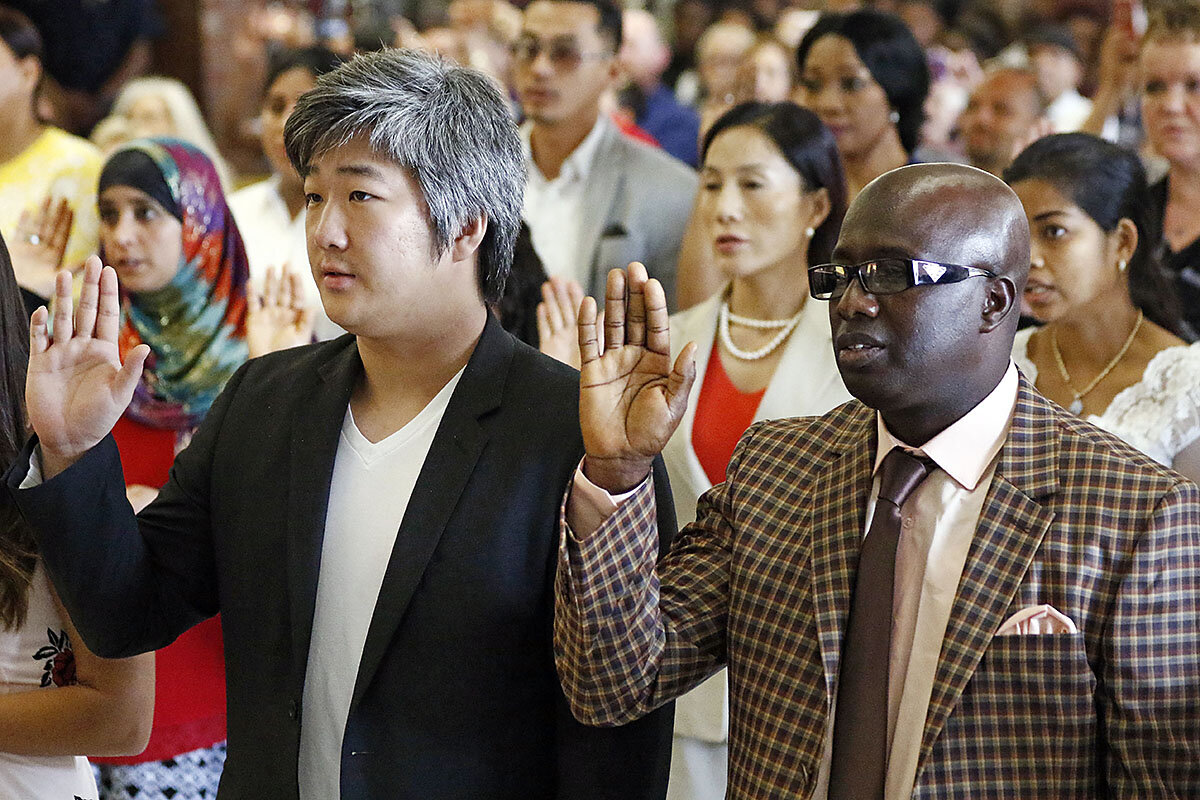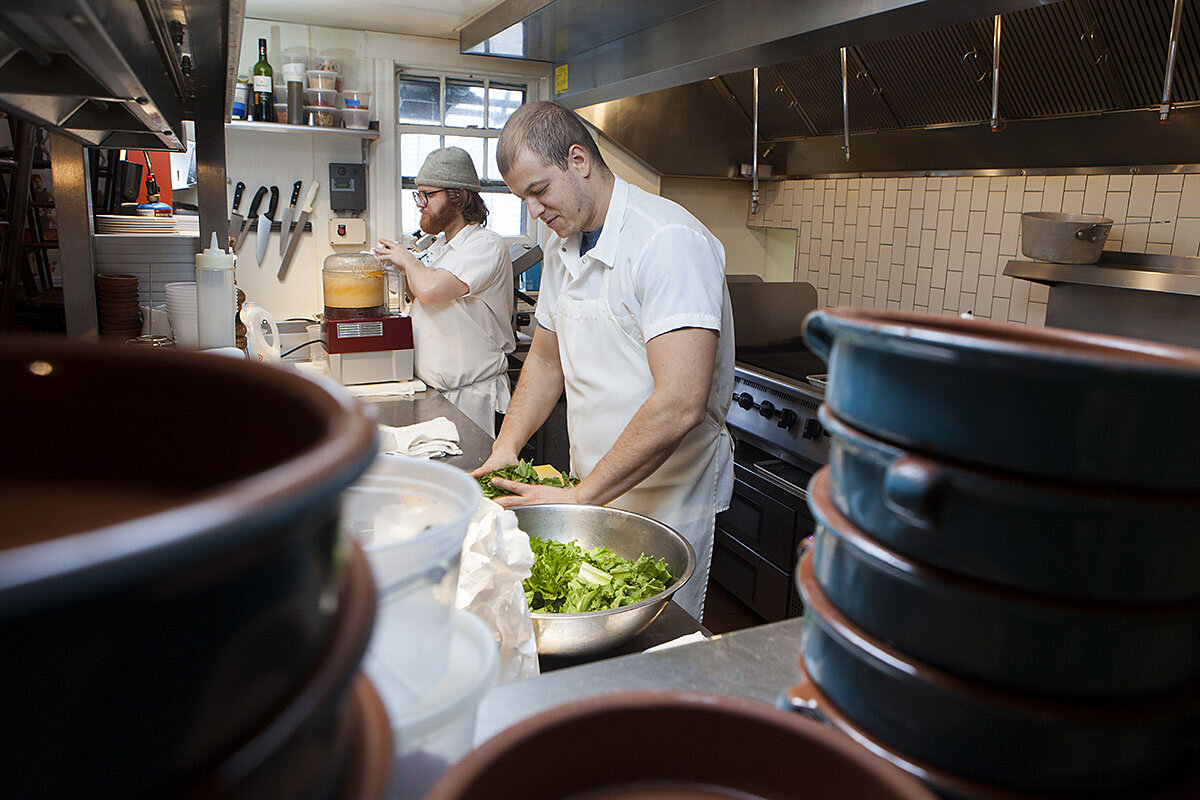Everyone wants to be judged on their merits – not some superficial quality such as race, gender, or even sartorial selections. But when it comes to US immigration policy, defining “merit” gets complicated by expected economic outcomes and what values Americans esteem.
Monitor Daily Podcast
- Follow us:
- Apple Podcasts
- Spotify
- RSS Feed
- Download
 David Clark Scott
David Clark Scott
Corporate titans are tired of waiting for Washington to rein in the rising cost of medical care. Amazon, JPMorgan Chase, and Berkshire Hathaway today announced they are setting up a nonprofit company that leverages their size and technology to provide their 1 million employees with affordable health care.
You might call it Corporate America versus the health-care industry. And these big three aren’t alone. Last year, more than 40 companies formed a similar initiative called the Health Transformation Alliance. They’re using their buying power to reduce the cost of prescription drugs and set up a lower-cost doctors network, and they are tapping IBM’s Watson to analyze health-care data.
Rising medical costs are a big problem for companies. About 60 percent of Americans get health insurance coverage through their employers.
What’s intriguing is how this trio of capitalists plans to approach the problem. Amazon’s CEO Jeff Bezos says, “Success is going to require talented experts, a beginner’s mind, and a long-term orientation.”
"A beginner’s mind." That’s encouraging. When tackling a chronic problem, Mr. Bezos suggests that what’s needed is an unjaded, innovative, and fresh perspective.
Will that offer a credible path forward? It's credible enough that health-care stock prices tumbled today.
Here are five stories selected to highlight paths to justice, fairness, and better government.










